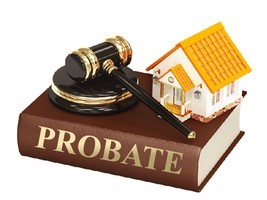Probate Attorney
Six Things To Do First When A Loved One Dies Intestate
If you have a loved one die without a last will and testament, here’s the first six things you should do:
- First and foremost, you need to allow yourself the time to properly grieve. This cannot be overstated. You should take the time to come to terms with such a loss.
- After allowing yourself time to grieve, you will need to identify the deceased’s heirs at law. These are the people who will be the ones to share in net assets of the deceased’s estate according to the law.
- It is important to know who the heirs at law are so that it can be determined who will take charge and seek to be appointed by the probate court as the Administrator of the estate. The Administrator is the person who will be in charge of probating the estate, gathering all of the deceased person’s assets, resolving any debts of the deceased, and transferring the remaining assets to the heirs at law. There is a statutory hierarchy as to who is preferred as an Administrator and a knowledgeable probate attorney should be consulted on this point.
- After it’s determined who will be the Administrator of the estate, that person can begin their duties by collecting a copy of the death certificate and any information regarding the assets and debts of the deceased. These documents are necessary to proceed with the probate process and will provide an initial, albeit probably incomplete, picture of the deceased’s estate.
- Next, if the deceased had any open credit card accounts, you should notify those companies that the person has passed away so that they can close the accounts. Doing this prevents the possibility of the estate incurring debt from theft or fraudulent purchases. Also in some cases closing these accounts may stop the estate from incurring further interest debt on unpaid balances. Furthermore, if you are contacted by any creditors or debt collectors you should notify them that the person passed away and that you are in the process of consulting an attorney about probating the deceased’s estate. Unless you personally are responsible for the debt, do not proceed to pay any of the deceased’s debts until you have consulted with a knowledgeable probate attorney. As the Executor or Executrix of the estate, you are not personally liable for the debts of the decedent and you should not pay these debts personally, as the lawyers at Carpenter & Lewis PLLC can explain.
- Thereafter, the Administrator should consult a knowledgeable probate attorney to help decide how to proceed including help with obtaining an official document from the county probate court that authorizes you to act for the estate, and to know how to conduct further communication with debt collectors and creditors of the estate. Regardless of the size or complexity of the estate, you should consult a knowledgeable probate attorney to help guide you through the process and make sure you comply with your duties pursuant to the law.




